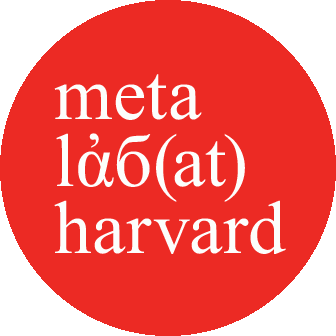Curatorial A(i)gents
Date: 2021Curatorial A(i)gents presents a series of machine-learning-based experiments with museum collections and data developed by members and affiliates of metaLAB (at) Harvard, a creative research group working in the networked arts and humanities.
Long before computers came to pervade every aspect of modern life, museums were collecting, organizing, and storing data. The art museum is a kind of vast machine for making all kinds of objects interoperable, from bronze-age figurines to Renaissance paintings to contemporary performance-art works. Like our digital machines, museums engender wonderful experiences—and they’re also engines of bias, power, and invisibility. The term “machine learning” represents a family of systems that use algorithms to find patterns in data inferentially, without explicit instructions. Artists and media makers are experimenting with machine-learning tools to create new kinds of artworks. But roles for machine learning in the art museum are still rare in practice. Presented in the Lightbox Gallery, metaLAB’s projects explore emerging possibilities for machine-learning systems while exploring vital issues at the intersection of technology and culture. Variously playful, analytic, and critical, metaLAB’s experiments use the museums’ own data to expressive ends. The names and dates of works and their makers; curatorial descriptions and histories of exhibitions; colors and dimensions; images of objects themselves—encountering such data as these, algorithms chart invisible relations, forge new connections, and breed monsters.
Some projects are playful: in Sympoietic System, Philipp Schmitt uses machine vision to connect paintings and prints with current weather conditions outside the museum; Dan Newman, Keith Hartwig and Kevin Brewster’s Aixquisite Corpse identifies body-like images in the collections, inviting visitors to construct their own strange hybrid beings; Dario Rodighiero restages Alan Turing’s “imitation game,” with computing pioneer Ada Lovelace as foil, in Surprise Machines.
Other projects in the series are analytic: through algorithms and visualization, Lins Derry’s Second Look reveals vital assumptions about gender and sentiment at play in art history; in Watching Machines Loving Grace, designer Kim Albrecht critically reflects upon commercial facial recognition systems; and in A Flitting Atlas of the Human Gaze, metaLAB founder Jeffrey Schnapp, working with Dietmar Offenhuber, Todd Linkner, and Kevin Brewster, uses machine vision to chart the ocular politics—who is looking at whom—across the museum’s coin, print, photo, and painting collections.
Additionally, there are projects that take a critical perspective: riffing on the shopping systems found in streaming media and online markets in This Recommendation System is Broken, Giulia Taurino plays with our museum-going expectations as consumers and viewers; in Ocean Amplification, Francisco Alarcón (in collaboration with MIT’s Stefan Helmreich) infuses sublime experience with questions about the environmental costs of computation.
The program for Curatorial A(i)gents is scheduled to run as part of an extended metaLAB residency during the Spring 2022 term in the Harvard Art Museums’ Lightbox Gallery. In the meantime, project teams continue to explore and refine their work, their learning deepening about relations between algorithms and curatorial enterprise.
Emerging from that process, the program’s accompanying publication is not a catalogue but a prologue. Reflecting emergent conversation rather than settled knowledge, this prologue combines participants’ projects and reflections with critical writing from a range of experts and practitioners, including Wendy Chun, David Joselit, Shannon Mattern, and Tim Schneider. Unfolding from pamphlet to poster, Chelsea Qiu’s ingenious design for the prologue publication features a “combinatory” structure that emphasizes dialogue among cross-cutting perspectives. Chelsea’s demo video, below, offers a view into this lively work.
This beautiful poster is now available for purchase via Printed Matter, the world’s leading non-profit organization dedicated to the dissemination, understanding and appreciation of artists’ books.
More than our schedule and publication strategy has changed, however. The combination of pandemic, economic and institutional distress, and cries for justice and equity in an election year, have challenged us to think about the precarity and resilience in our community. In a sense, the university is a collection—of courses, buildings, and research efforts; like the museum or the archive, the collective choices comprising it build a reality, even as they obscure alternative possibilities. As an added project, the Curatorial A(i)gents team is putting its tools in mapping, design, and analysis to work tracking the impact of emergent crises on the university as collection and community. Called Hindsight 20/21, the project will visualize effects of pandemic and unrest on the curriculum and wellbeing. Conducted with a growing consortium of student researchers, the project will culminate in a suite of interactive visualizations and conversations, to be staged in the Harvard Art Museums in the Spring of 2021.
A collective headquartered at Harvard’s Berkman Klein Center for Internet and Society, metaLAB explores the digital arts and humanities through research, experimentation, tool building, teaching, through publications in print and online, and via exhibition, performance, and social practice. Here at the Harvard Art Museums, as with partners across the university, and in the world at large, metaLAB’s work infuses traditional modes of academic inquiry with an enterprising spirit of hacking, making, and creative research.

